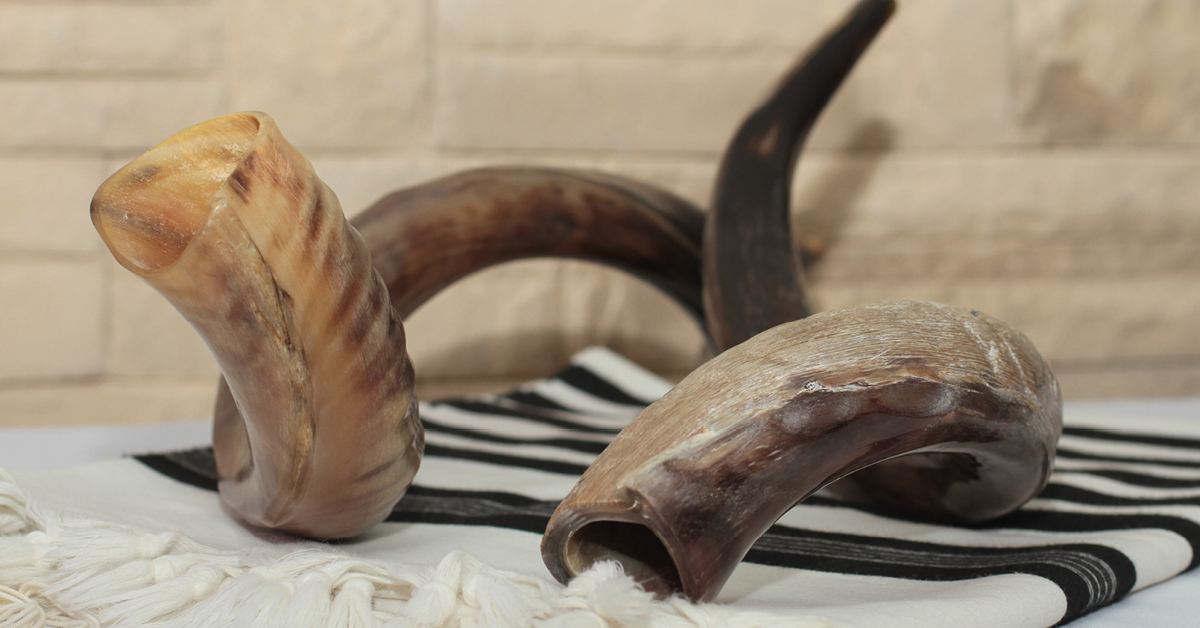The first day of the seventh month is characterized as a day (or Remembrance) of "loud blasts" - Yom Teruah or Zikhron Teruah (Leviticus 23; Numbers 29). We often associate the shofar on Rosh HaShana with the ram offered instead of Yitzhak in the story of Akeidat Yitzhak, or with the sound of the shofar during the Revelation at Sinai.
What connotation is the shofar meant to have?
To help us gain perspective, we can ask another question: in what context does the shofar appear in Neviim and Ketuvim, and what does the shofar evoke there?
Let’s take a look at some of the many and varied appearances of shofar.
In some cases, such as in the Book of Yirmiyahu, the shofar seems to signify a warning (Jeremiah 6, 17) - which the people do not heed in this case - cause for alarm or call for help (Jeremiah 6, 1), or war (Jeremiah 4, 19).
In the Book of Shoftim, Gideon uses the shofar as part of a motivational battle cry, calling troops to join him and to scare the enemy, making it seem like the army is much more vast than it really is (Judges 6, 34; Judges 7, 18). Shaul uses the shofar in a similar way, as a call to prepare for war (I Samuel 13, 3), but Yoav uses the shofar to halt a battle (II Samuel 2, 28). Nehemiah uses the shofar as an alert that the enemy is approaching and that the builders need to be ready to defend themselves (Nehemiah 4, 12).
In the Book of Yoel, the sounding of the shofar serves to alert the people that the fearsome “Day of God” is approaching (Joel 2, 1), and also acts as a gathering call for people to have a solemn day of fasting (Joel 2, 15).
Yeshayahu presents God as calling for the shofar to be sounded to remind the people of their sins (58, 1), and Yehezkel mentions the shofar as warning the people to repent (Yehezkel 33).
Amos associates the shofar with concern and fear, arguing that if a shofar is blown in a town, the people will be trembling with alarm (3, 6). The book of Iyov also connects the shofar with a negative sense of dread (Job 39, 24).
Though the sound of the shofar certainly attracts attention, sometimes it accompanies extremely joyous events. In Mizmor 81 of Tehillim, people are called to use various instruments to praise God. Sounding the shofar is one of the ways that people are exhorted to praise God (Psalms 150, 4).
When King David at long last brings the Ark of the Covenant (Aron haBrit) to Jerusalem, he and the House of Israel accompany it with loud shofar blasts. This is certainly not a context of war. Here, the shofar blasts joyously call attention to a very important and noteworthy event – the positioning of the Ark of God in its rightful place, the location which would become the centralized site of worship and the recognition of earthly and Divine Monarchy. (II Samuel 6, 15; I Chronicles 15, 28)
In a similar vein, Mizmor of Tehillim sung as part of Kabbalat Shabbat, the sound of the shofar appears along with other happy shouts and trumpeting, joyously welcoming God’s approach to judge the land (Psalms 98, 6), ostensibly thankful that God will judge instead of the corrupt and fallible human judges (Psalms 82; Psalms 94).
We may be familiar with Yehoshua having the Kohanim surround Jericho, blow the shofars, which alerts the people of Israel that it is time to echo the blasts, and then the wall of Jericho tumbles down (Joshua 6).
This seems to be an instance wherein the shofar signifies war, but the appearance of the Kohanim and the Ark suggest that there may be a ritual connotation- that of the entrance of God, the King of Kings.
And a famous verse of Yeshayahu looks to the future, wherein a loud shofar blast will sound, calling the dispersed people of Israel to return to the land from their exile to worship God at the Mount in Jerusalem (27, 13).
According to a mizmor in Tehillim (which is recited on Thursdays), the shofar seems to be sounded on the first of the month (Psalms 98, 6). Could Rosh Hodesh serve as a mini- Rosh HaShana?
We find a mixture of alarm, joy, trepidation, relief, seriousness, and excitement in the sound of the shofar as it appears in the Neviim and Ketuvim (Prophets and Writings). Perhaps these contradictions can all find expression throughout the many shofar blasts of the day we call Rosh HaShana.


